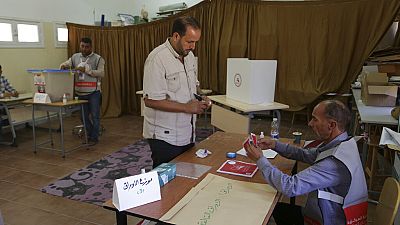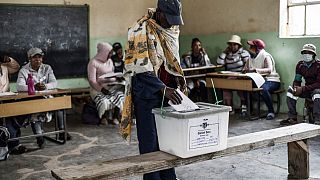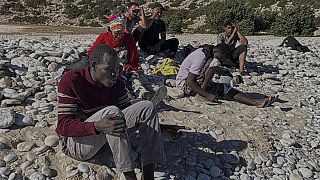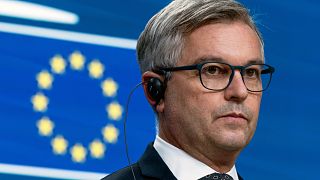Libya
The UN's new special envoy for Libya warned Tuesday that the first anniversary of the postponed elections was fast approaching and that further postponement of the polls could lead the country to even greater instability, putting it "at risk of partition.
Abdoulaye Bathily told the U.N. Security Council that the October 2020 ceasefire still held despite escalating rhetoric and the build-up of rival governments' forces in the east and west of the country.
Oil-rich Libya plunged into chaos after a NATO-backed uprising toppled and killed longtime dictator Muammar Gaddafi in 2011.
In the chaos that followed, the country was divided between rival administrations supported by rebel militias and foreign governments.
The current political crisis stems from the failure of elections on December 24, 2021, and the refusal of Prime Minister Abdelhamid Dbeibah - who headed a transitional government in the capital, Tripoli - to resign.
In response, the country's eastern-based parliament appointed a rival prime minister, Fathi Bachagha, who has been trying for months to install his government in Tripoli.
Bathily, a former Senegalese minister and diplomat who arrived in Libya in mid-October and has traveled to all parts of the country, told the council that he has seen Libyans hope for "peace, stability and legitimate institutions."
"However, there is a growing recognition that some institutional actors are actively impeding progress toward elections," he said.
He warned that further prolonging the elections "will make the country even more vulnerable to political, economic, and security instability" and could risk partition. And he urged Security Council members to "join efforts to encourage Libyan leaders to work with determination to hold elections as soon as possible.
Bathily urged the Council to "send an unequivocal message to the obstructionists that their actions will not go without consequences."
He said the Security Council must make it clear that ending the ceasefire and resorting to violence and intimidation "will not be accepted and that there is no military solution to the Libyan crisis."
Russia requested this preparatory meeting and its deputy ambassador, Dmitry Polyansky, described the situation in the country as "very tense" and "rather unstable", with no sign of an end to the rival governments soon.
This "means that there will be no inclusive national elections or unification of Libyan state bodies in the short term," he said.
Mr. Polyansky warned that "the situation risks getting out of control under the influence of the divergent interests of external stakeholders.
He accused Western nations, especially the United States, of prolonging the Libyan crisis by using the turbulent situation in the country to pursue their own interests, namely unfettered access to Libyan oil.
Polyansky asserts that Western governments have set themselves the goal of "turning Libya into a 'gas station' to meet their energy needs." And he asserted that the U.S. administration "still views the Libyan political process solely through the prism of U.S. economic interest ... with the aim of preventing the growth of 'black gold' prices."
U.S. Deputy Ambassador Richard Mills countered by saying, "The United States rejects accusations that somehow access to Libyan oil reserves is the cause of the political impasse in Libya today."
Referring to Russia, he said the U.S. was dismayed that a Council member that violated the U.N. Charter by invading and occupying its neighbor continues "to divert the attention of this Council with baseless conspiracy theories."
"This is simply a failed attempt to shield itself from legitimate criticism," Mills said. "Libyan leaders must take responsibility for achieving lasting peace, good governance, and ultimately prosperity for the Libyan people. And the United States stands ready to support them."













Go to video
Cameroon's presidential election gathers momemtum as candidates file for the October vote
Go to video
Nelson Mandela International Day 2025: The power to end poverty is in our hands
01:13
Voter turnout in Togo's municipal elections overall low
00:50
Cameroon: Biya reshuffles top military ranks days after re-election bid
00:11
US, European allies agree August deadline for Iran nuclear deal
Go to video
UN Special Rapporteur calls for concrete action on 'genocidal' Gaza occupation